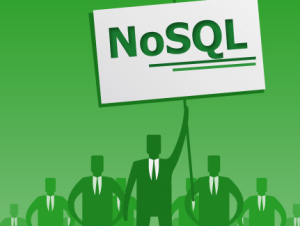
NoSQL Database Vendors Report Growth

NoSQL database vendors continue to rack up the customer wins as companies seek the greater flexibility and performance that NoSQL databases can deliver, particularly when it comes to the high-volume needs in telecommunications, retail, online gaming, and advertising.
Couchbase last week announced a flurry of customer wins during the second quarter, which ended June 30, days after the vendor revealed a large $60 million Series E investment. The company says it landed a total of 70 new accounts during the quarter for its document-oriented database.
Among the big names dropped by Couchbase are telecommunications giants AT&T, Verizon, and Orange; video game makers Blizzard Entertainment and Electronic Arts; IT firms Cisco and Symantec; grocery store chains Leclerc and Tesco; the financial services firm FICO; and e-commerce sites WebMD, Tixr, and vente-privee.com.
“The market is clearly moving to broader adoption of NoSQL for big data management and mission critical applications,” Bob Wiederhold, the CEO of the Mountain View, California company, says in a statement. Wiederhold added that his company continued to do well against MongoDB, an early leader in the NoSQL space that Widerhold has been openly gunning for, as well as against Oracle, which sells the world’s most popular relational database management systems (RDBMs).
Couchbase isn’t the only NoSQL database vendor seeing an uplift in business as a result of dissatisfaction with RDBMs. MongoDB, which sells a document-oriented NoSQL database that’s similar to Couchbase’s, recently announced that its business partner program has 600 members, to go along with a customer base more than 10,000 strong (most of those are open source customer). Meanwhile, DataStax, developer of the wide-column store, open source Cassandra database, just surpassed the 500 mark in terms of paying customers.
While DataStax, MongoDB, and Couchbase see themselves as the big dogs in the NoSQL business, they would do well not to ignore some of the smaller outfits nipping at their heels. Among those are Aerospike, which recently unveiled a new open source distribution strategy for its in-memory key-value store, to go along with $20 million in venture funding.
Aerospike, which is also based in Mountain View, last week reported three customer wins at advertising networks based in India and Denmark. At the Danish firm AdForm, Aerospike says it replaced a Cassandra database for an ad serving application.
AdForm uses a variety of different databases to suit different needs, says CTO Jakob Bak. “For our real-time trading and dynamic creative engines, Aerospike is unbeatable,” Bak said in a statement. “Not only does Aerospike provide stable and predictable low latency, but it also delivers the lowest possible latency in a system that is easily scalable and manageable.”
AdForm’s Aerospike cluster is split between two data centers, which are connected via an optical line. Each cluster has 96GB of data stored in DRAM and with 1.7TB of data stored on SSDs (the database is designed for such hybrid in-memory setups). AdForm pulls data from a separate Hadoop cluster into Aerospike for real-time bidding. All told, the Aerospike database is handling more than 200,000 operations per second with a latency of less than 1 millisecond, the company says.
Meanwhile, in India, InMobi uses Aerospike as the context store for its ad-serving platform, where it also runs alongside Apache Hadoop to serve tailored ads. Vizury has Aerospike running on Amazon R3, where it helps to power an ad serving platform that processes 30TB of data a day, including the “purchase intent” data of almost 500 million users and 5 billion-plus bid requests.
Related Items:
Look Out, Mongo, Here Comes Couchbase































